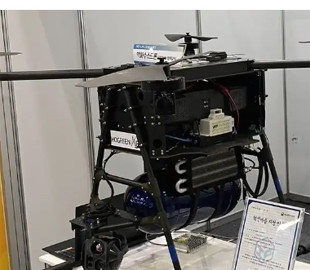
Hydrogen fuel cell drone from Hogreen Air can fly up to 9,300 km and work for more than 14 hours, expanding opportunities in many industries.< /h2>
The South Korean company Hogreen Air presented an innovative hydrogen fuel cell drone capable of flying up to 9,300 km and staying in the air for more than 14 hours.
Hogreen Air has demonstrated a new high-speed drone that uses liquefied hydrogen as its main fuel, offering an impressive range and flight duration. During test flights, the device demonstrated the ability to be controlled by operators at a distance of almost 9,300 km, in particular, in one of the tests in Germany, the operators were in South Korea. The drone is capable of carrying up to 10 kg of payload and is equipped with communication systems based on LTE/5G and radio frequency technologies.
200% Deposit Bonus up to €3,000 180% First Deposit Bonus up to $20,000The main advantage of the drone is the use of hydrogen fuel cells based on polymer electrolyte membrane (PEM), which work on liquid hydrogen. This technology provides higher energy efficiency compared to traditional lithium batteries, which allows you to fly much longer — up to 14 hours continuously. The hydrogen used in such fuel cells is 800 times denser than gas, which significantly increases energy density and environmental friendliness.
In addition to long autonomy and flight range, the drone is equipped with artificial intelligence for facial recognition, which makes it ideal for conducting search and rescue operations and observations. Thanks to this, as well as the low level of noise and vibration, this drone can find a wide range of applications in the military, industry and service sectors.
Hogreen Air has also developed a Hydrogen Power Pack — an energy supply system based on hydrogen fuel cells, which can be used to autonomously power drones. The new agreement with the British company Intelligent Energy is expected to lead to the production of more powerful fuel cells by 100 kW as early as 2024.

